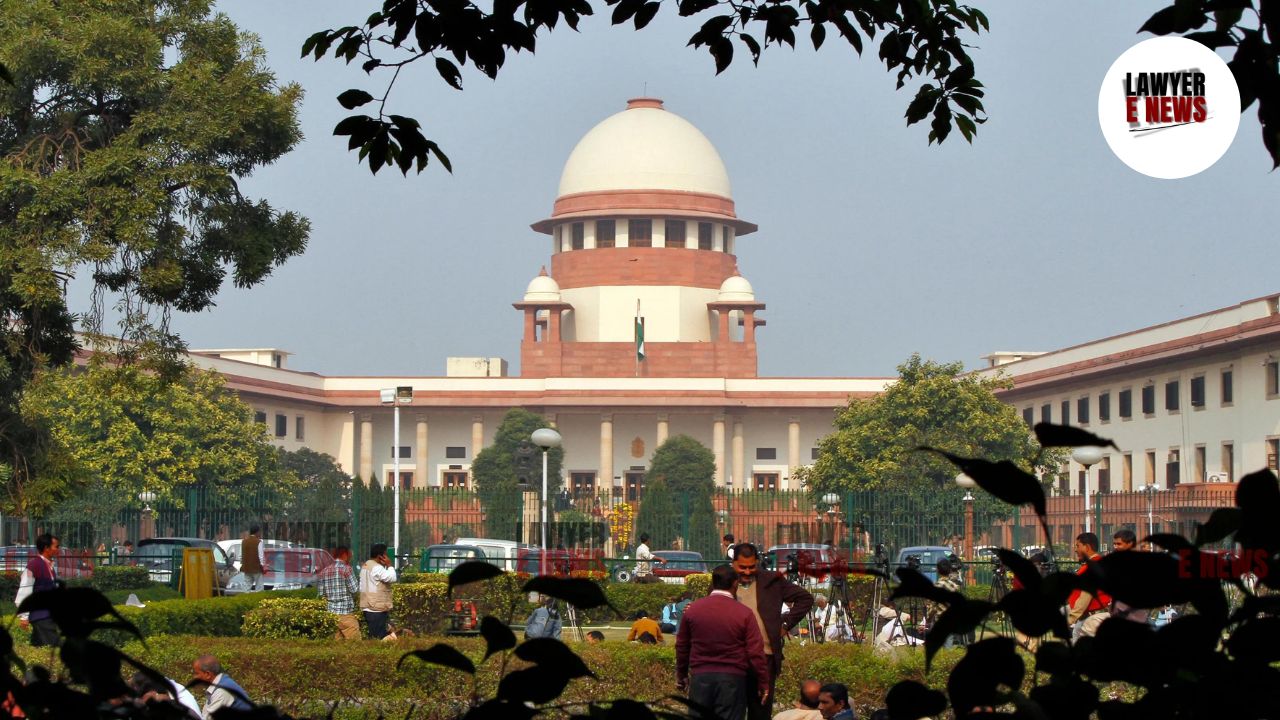-
by Admin
15 February 2026 5:35 AM



Supreme Court of India struck down the disciplinary penalty of a 2% permanent pension cut imposed on a retired Senior Medical Officer. The Court found the proceedings to be arbitrary, malicious, and in retaliation for the officer’s prior legal battles against senior officials. It directed the restoration of the appellant's full pension with 6% interest on withheld amounts and awarded ₹50,000 in costs for harassment.
Introduction: Supreme Court Condemns Vindictive Action Against Retired Officer
The case revolved around disciplinary proceedings initiated against Dr. Bhupinderpal Singh Gill, a Senior Medical Officer, just 11 days before his retirement on March 31, 2017, under Rule 8 of the Punjab Civil Services (Punishment & Appeal) Rules, 1970. He was charged with proceeding on leave without sanction, failing to comply with superior orders, and not participating in the government’s pulse polio program. The proceedings culminated in a 2% cut in his pension, imposed by the disciplinary authority and later modified by the Punjab and Haryana High Court to apply for five years.
The Supreme Court reversed both decisions, ruling that the proceedings lacked fairness, violated natural justice, and were based on hearsay and insufficient evidence. The Court held that the disciplinary action was initiated with malafide intent, as the officer had earlier filed legal cases against senior officials.
Disciplinary Proceedings Initiated Near Retirement
Dr. Gill, a government servant with 34 years of unblemished service, applied for leave on January 27, 2017 to attend legal proceedings in the High Court. Allegations arose that he proceeded on leave without obtaining approval, failed to participate in a pulse polio program, and did not comply with orders from his superiors. The charge sheet was served on March 20, 2017, days before his retirement.
The inquiry commenced nearly a year later, in February 2018, and was conducted by a retired bureaucrat. The inquiry report found the charges "proved," except the allegation that Dr. Gill had threatened legal action against a senior assistant. The disciplinary authority imposed a permanent 2% pension cut, later modified by the Punjab and Haryana High Court to a five-year reduction.
The Supreme Court examined the evidence and procedure and found several critical flaws in the disciplinary proceedings.
Malafide Intent Behind Proceedings
The Court observed that the proceedings were initiated as retaliation for Dr. Gill’s previous legal actions against senior government officials. In one case, the Punjab government had to pay Dr. Gill ₹3 lakh in dues following a contempt petition filed by him.
The Court noted, “This case reveals a clear misuse of disciplinary powers to punish a public servant for asserting his legal rights. Such acts are deplorable and violate constitutional values.”
Lack of Evidence and Reliance on Hearsay
The charges against Dr. Gill were based on telephonic instructions allegedly informing him that his leave was not approved. However, no call records or written communication supported this claim. The Inquiry Officer admitted that this evidence was hearsay, yet still concluded that the charges were partly proved.
The Court held that findings based on hearsay violate the principles of natural justice, stating: “There was no legal evidence to support the charges. Findings of guilt based on unsubstantiated and extraneous considerations are unsustainable in law.”
Non-Assignment of Election or Polio Duties
The Court found that Dr. Gill was not assigned election or pulse polio duties during the period in question. Furthermore, an Election Commission directive dated September 7, 2016 exempted officers within six months of retirement from election duty. The Court criticized the disciplinary authority for ignoring this exemption.
“The Election Commission’s directive exempting officers nearing retirement from election duty could not have been ignored. Proceeding against the appellant in defiance of this directive was both arbitrary and malicious,” the Court observed.
Procedural Unfairness
The Court highlighted significant procedural lapses. Dr. Gill had submitted a detailed response to the inquiry report, pointing out its flaws. However, the disciplinary authority dismissed his response with a single sentence, calling it “not acceptable.”
“Dismissing the appellant’s detailed response without due consideration violates the principles of natural justice. Procedural fairness is the cornerstone of disciplinary proceedings,” the Court observed.
The Supreme Court quashed the disciplinary proceedings and restored Dr. Gill’s full pension. The Court further directed that any withheld pension amounts be refunded within three months, with 6% annual interest. Additionally, the Court awarded ₹50,000 in costs to Dr. Gill for harassment, directing the Punjab government to recover the amount from the officials responsible for initiating the proceedings.
The Court stated, “The constitutional vision of a welfare state demands that public servants are treated with fairness and dignity, especially at the end of their service. Retaliatory disciplinary proceedings undermine this vision.”
This judgment reinforces critical principles in disciplinary proceedings:
Disciplinary action must be supported by clear evidence and free from malafide intent.
Natural justice and procedural fairness must be upheld at all stages of the inquiry.
Proportionality of punishment must be maintained, especially for public servants nearing retirement.
By holding officials accountable for vindictive actions, the Court has sent a strong message against abuse of power in disciplinary matters.
Date of decision : January 20, 2025
